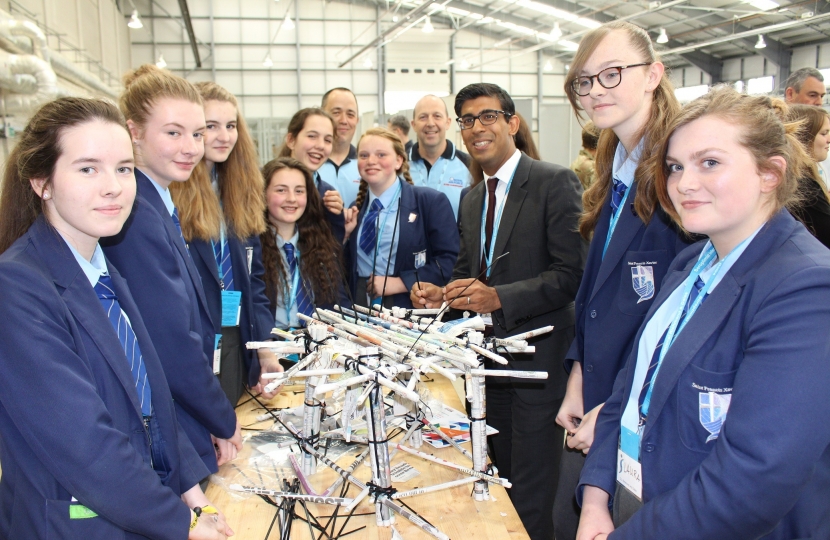
You may remember a controversy about a TV advertising campaign for a brand of infant milk which featured baby boys dreaming about being an engineer and the baby girls wanting to be a ballerina.
It was a none-too-subtle example of gender stereotyping. But the really surprising thing about it is the date the campaign ran. The 1970s or 1980s perhaps? No, it was just three years ago.
It helps to explain why we struggle in this country to increase the numbers of women embarking on careers in science and engineering.
This is despite plenty of inspirational examples, like the women who invented the wifi in your home, the Bluetooth in your phone and Marie Curie who, despite being brought up in the early 1900s when most women were even not expected to work, won not one by two Nobel prizes for her pioneering work on radioactivity.
We are making some progress - forty per cent of maths and physics graduates are now women - but there is still a lot to do in other areas. Only 15 per cent of computer-science and engineering graduates are women and across the UK only eight per cent of our professional engineers are women.
Why is this important, you might ask? Apart from the vital importance of science and engineering to this country’s future prosperity, women bring different qualities to this work.
It was a point well made by the RAF’s Chief Engineer, Air Vice Marshall Sue Gray, at the RAF Leeming launch of an initiative to encourage more girls to take up STEM (science, technology, engineering and maths) subjects when choosing their GCSE and A-level options.
Sue, who is responsible for looking after the RAF’s planes and the sophisticated electronics they contain, said a lifetime in engineering had taught her that women often had analytical qualities and alternative ways of tackling problems that were invaluable in an increasingly complex technological world.
The launch event was held to promote a Northern STEM: Jobs for the Girls conference to be held at the airbase in October which will be attended by girl pupils, parents and teachers, employers and careers advisors from across the north of England.
I am very proud to say that the October conference is being hosted by a local branch of an organisation dedicated to transforming the lives of women and girls around the world.
The Richmond and Dales branch of Soroptimist International celebrates its golden jubilee this year and, as befits an organisation with a track record of many worthwhile achievements, wanted to mark the occasion with an event which left a lasting legacy.
Led by a project team of Dr Judy Sheahan, Sandra Baxter, Susan Fenwick, Margaret Clayson and Michele Herdman, the club instigated the initiative with help from RAF Leeming and a host of other organisations.
And as the father of two small girls who would be delighted if they grew up to be enthused by science and engineering, I’ve been delighted to support and help promote the conference.
I attended the launch event in June and was intrigued to watch the all-girl teams from Richmond, Bedale High, St Francis Xavier and The Wensleydale School endeavour to make useable chairs from newspaper, glue and cable ties. It’s possible as the teams proved!
If you are a girl pupil, or the parent of one, please check that your school is going to be represented at October’s conference. More details from www.stemjobsforthegirls.co.uk
